The highlights:
- Managing your expectations
- What you should expect
- Fight week preparation and awareness
- Our top 3 tips for a positive competition experience
Fighting is an extraordinary thing. It takes a very particular type of determination to put your body on the line in the ring, cage or competition mats.
No matter the art that you practice, be it striking or grappling, you’re putting your wellbeing at risk in what is not only the most physically taxing but also the most psychologically demanding of competitive sports.
Not knowing what to expect can be scary and overwhelming. Diving into something new, trusting your safety to your coaches and not knowing whether your skills will be enough to get the job done; whether YOU will be enough to get the job done.
In this sense, failing to keep your head in the throws of comp preparation can have seriously detrimental effects on your performance. Left unchecked, the thoughts and emotions running rampant in your body and mind can be enough to make your first martial arts competition a negative experience.
And that, in itself, is a tragedy.
The experience of your first fight should be both exciting and memorable, and shouldn’t be wasted in needless stress, anxiety or fear. So, in this article, we’ll go over some of the practices you can put into place to help you mentally prepare for your first competition and carry over into future events.

Managing your expectations
Now, we don't bring up the idea of managing expectations in the sense that you should expect disappointment or downplay your dream of being a champion. The drive we feel within to chase our dreams is sacred and should be cherished.
It’s that, as fighters, we all fantasize about impressing the crowd with mind-blowing, world-class skills beyond our experience; about having our hand raised to the sound of thunderous applause and admiration as the world bears witness to the next big thing in competitive martial arts.
THIS is the expectation that needs to be managed.
Rather, realise and accept that the day of your first martial arts competition is probably not going to be the day where you blow everyone's minds with technique and technicality the likes of which this world has never seen, and that's ok.
For your first few competitions at the very least, your focus should be on applying solid, fundamental techniques and staying composed. Stay disengaged from your raging emotions, listen to advice from your coach, and participate wholeheartedly in every aspect of the experience, no matter what you may feel in your body.
What you should expect
Nerves
Don't fight nerves. They are necessary. It can be easy to get caught up in the idea that nerves are an indication of fear, but that's not true. Nerves are simply your body getting ready, preparing you for what's to come.
When you feel nervous, don’t interrupt it - simply stay grounded and present in the moment. Realise deeply that nerves are an adaption of your body to make you fight better and accept them as a part of the experience.
The adrenaline dump
Even the most well prepared combative experiences the rush/dump of adrenaline of their first fight. The build-up of nerves, the energy of your team and the pressures of competition all result in a huge wave of adrenaline that’s going to have an impact on your fitness after the fight’s first round or the day's first match. Again, this is a matter of acceptance. Don’t put energy into resisting the onset of post-dump fatigue. Instead, accept it as a reality and trust that your training, fundamental skills and determination are all you need to achieve victory.
The variability of the opponent
In most cases during your early MA competitions career, you’re not going to know who you’re up against until fight day. Martial arts competitions are categorized so that you’re matched with someone of similar experience but it's easy to get caught up in wanting to know who you’re fighting, how long they’ve been training, what gym they’re from, etc. At the end of the day, these things are not important. The specific skillset of your opponent is an aspect that is out of your control, and spending time worrying endlessly about what they may or may not do is a waste of time. Trust that your preparation has equipped you with everything that you need to attack and defend effectively and that your coach or cornerman will advise you during the match.
As the saying goes - fight your fight.
Fight week preparation and awareness
Depending on where your head’s at, fight week can be a time of great stress or great calm.
There can be a lot riding on your last two weeks of training when it comes to your mental preparation and it's easy to put unnecessary pressure on yourself by entertaining ideas that you’re underprepared in one area or another.
Realise that your body is prepared, the hard work is done, and your physical fitness is no longer an aspect of the fight that is in your control. At this stage, concentrate only on refining the aspects of your game that you CAN control. Work on the technical aspects of your attack, keep the muscle memory of your defensive positions fresh and listen intently to the advice of your coach.
“But I had a bad spar/roll and no longer feel like I'm ready!”
Just because you had a bad training session doesn't mean you aren’t ready to compete. Try not to put too much emphasis on feeling exactly how you want to feel as fight week rolls around, as it's usually not in your control. Trust your coach and your ability, and let your individual expectations fall to the wayside.

Fight day
“Have I done enough X? Have I done enough Y? I should have worked harder here, I should have worked harder there.”
While it's okay to have these thoughts, you mustn't ENGAGE with them. That is, you don't entertain the ideas that pop into your mind and accept them as reality. Instead, realise that they are just thoughts. They have no bearing in reality; they are not the truth of your current situation. Let the thoughts come, and let them go. Stay in your body, not in your head.
In this state, you are grounded in the present moment. Pay attention to the feeling of your feet on the ground and the density in your legs, anchoring you to the present. There's no need to delve into thoughts that arise about the past, and there's no need to explore fearful thoughts about the future.
The more present you can be before the fight, the more present you will be during the fight.
Our top 3 tips for a positive competition experience
1. Don't get caught up in appearances
As combat athletes, we’re constantly striving for improvement. We have to evaluate our strengths and weaknesses so that we know how to improve our game and be the best that we can be. And if we’re not careful, these evaluations can turn into unnecessary self-criticisms that hinder our confidence.
While we can't always avoid the self-criticisms that, in moderation, help us to improve, it's crucial to not get caught up in the idea that everyone around us shares our overly critical self-image.
Thinking you can truly know or control what other people think is a fool's errand. Place no emphasis on the ideas or recognition of others and strive to achieve only for your continuous improvement and growth.
“But if I fail, everyone will think that I am weak.”
You could win convincingly, and people might still criticise you. You could lose convincingly, and people might still admire and celebrate your performance. There’s truly no way to really know, so let it go!
2. Don't resist your ‘negative’ emotions
In the lead up to your first contest, you will experience a range of feelings and emotions that you’ve likely never felt before. For some people, these emotions are so intense that they feel overwhelmed by them. The key here is not to resist, but to accept them.
This may seem obvious, but without your mind adding fuel to the fire of self-doubt, your emotions cannot harm you.
Simply acknowledge your emotions and appreciate that they indicate a desire to win. Rampant thoughts and negative emotions can’t harm your performance unless you become needlessly engaged with them or attached to the idea that they are too much and are going to hinder you.
3. Practice visualisation
A practice that is utilised by some of the world's best martial artists including Israel Adesanya and Alexander Volkanovski, visualisation is a powerful tool that allows an athlete to ‘mentally rehearse’ the events of fight day leading up to an event.
In principle, this does for you what any other kind of rehearsal does. It allows you to experience the events of fight day in a calm and controlled environment, going through the motions of the lead-up and taking away an aspect of unfamiliarity that comes with an event.
Set aside some time, perhaps 10 or 20 minutes, to sit comfortably and be still. Close your eyes, breathe deeply and slowly and feel the contact of your body against wherever you are sitting. Once you feel present, let your breathing fall into a natural rhythm and chronologically visualise each aspect of fight day.
Visualise getting dressed and driving to the venue. Imagine putting on your gi or kimono, or your fight trunks and hand wraps. Visualise warming up with your coach and walking to the mats, cage or ring, seeing your opponent for the first time, waiting for the match to begin, and then going through the motions of the fight. Remember to take your time and allow yourself the space to feel whatever emotions you may feel.
A final note
Your presence in the moment should be the core of your competition preparation, and every aspect of your first competition experience should be appreciated and savoured.
So enjoy the energy of the event and the time with your team, and learn everything you can from the experience!


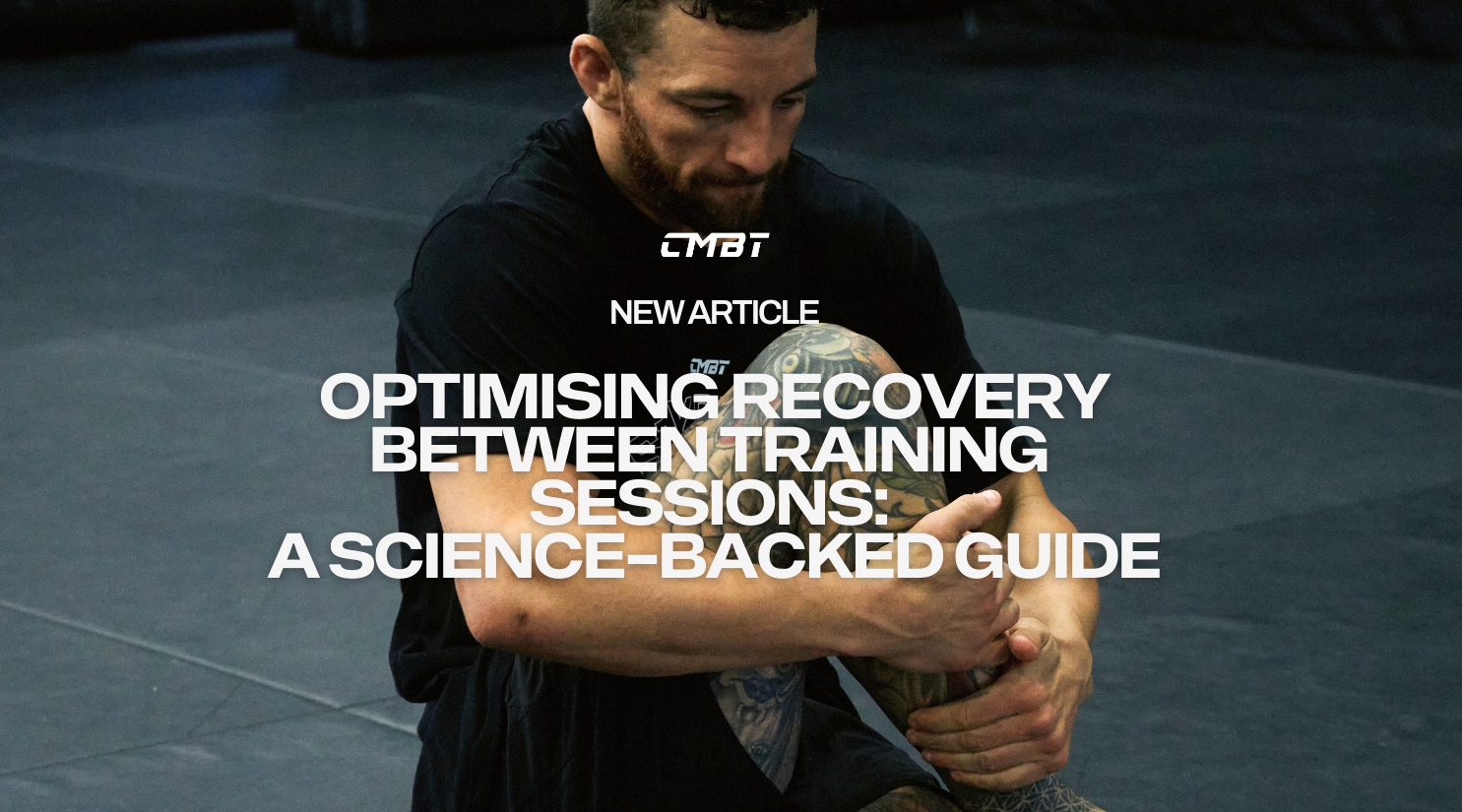



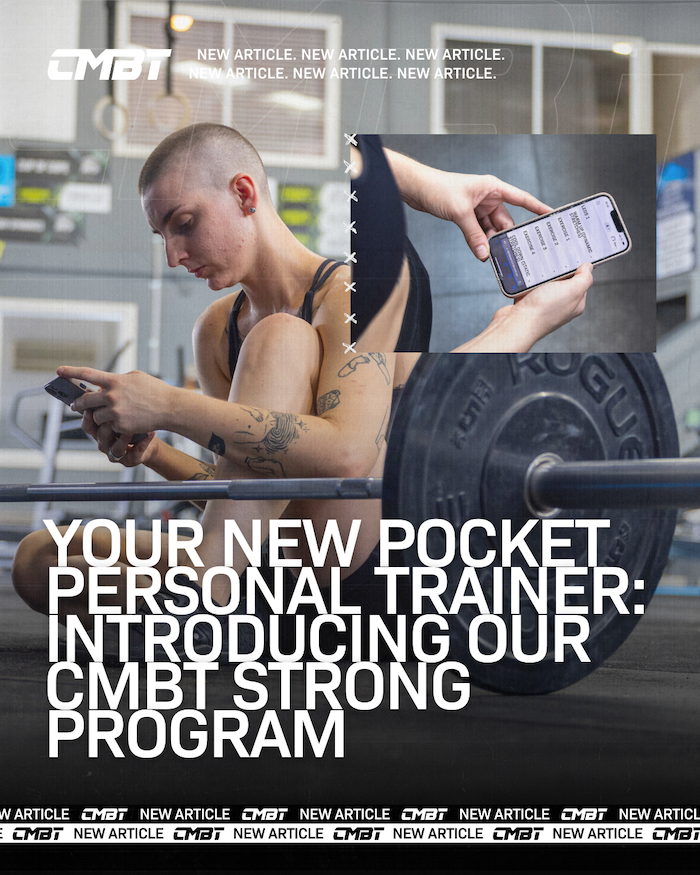

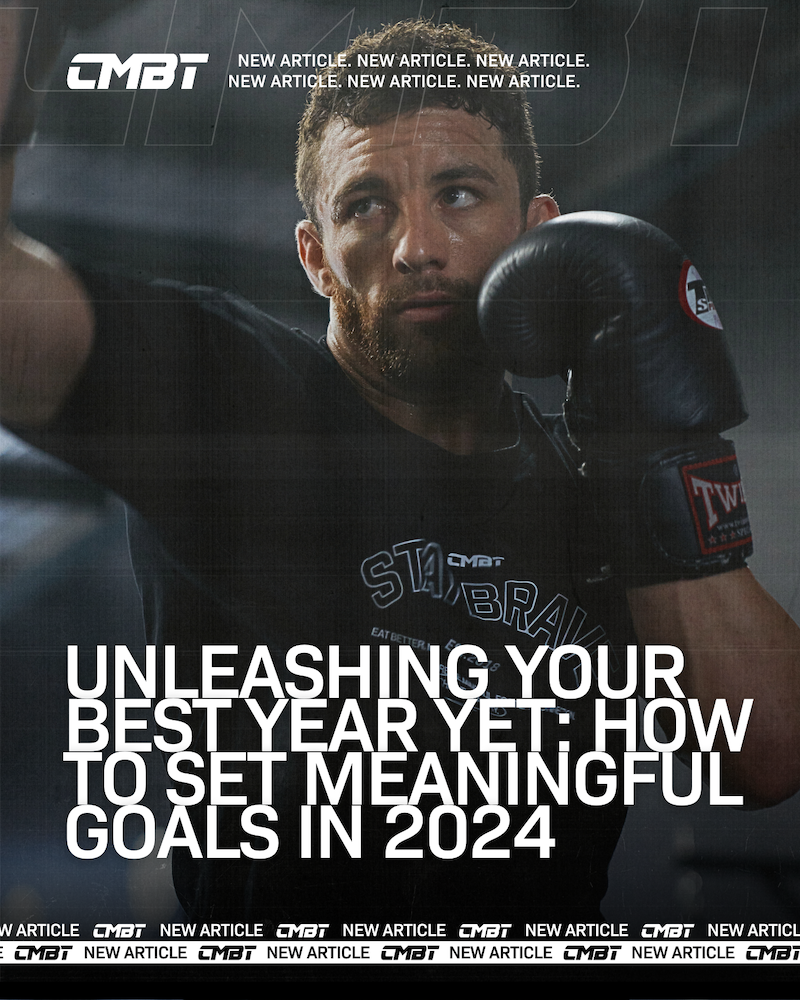
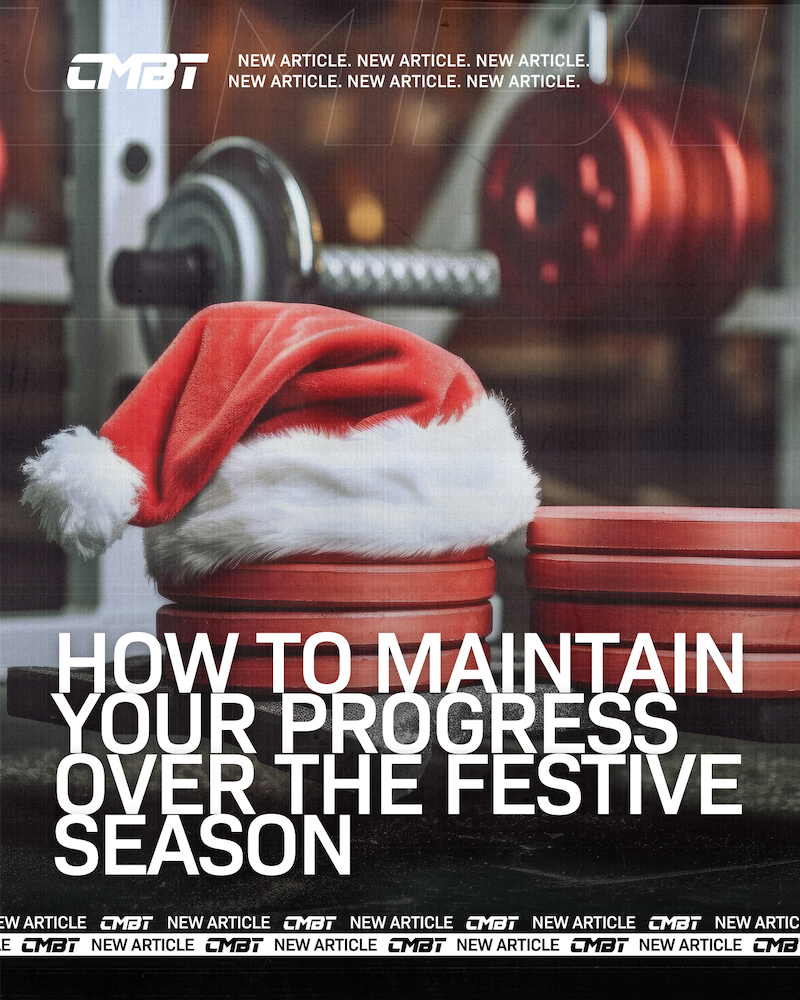






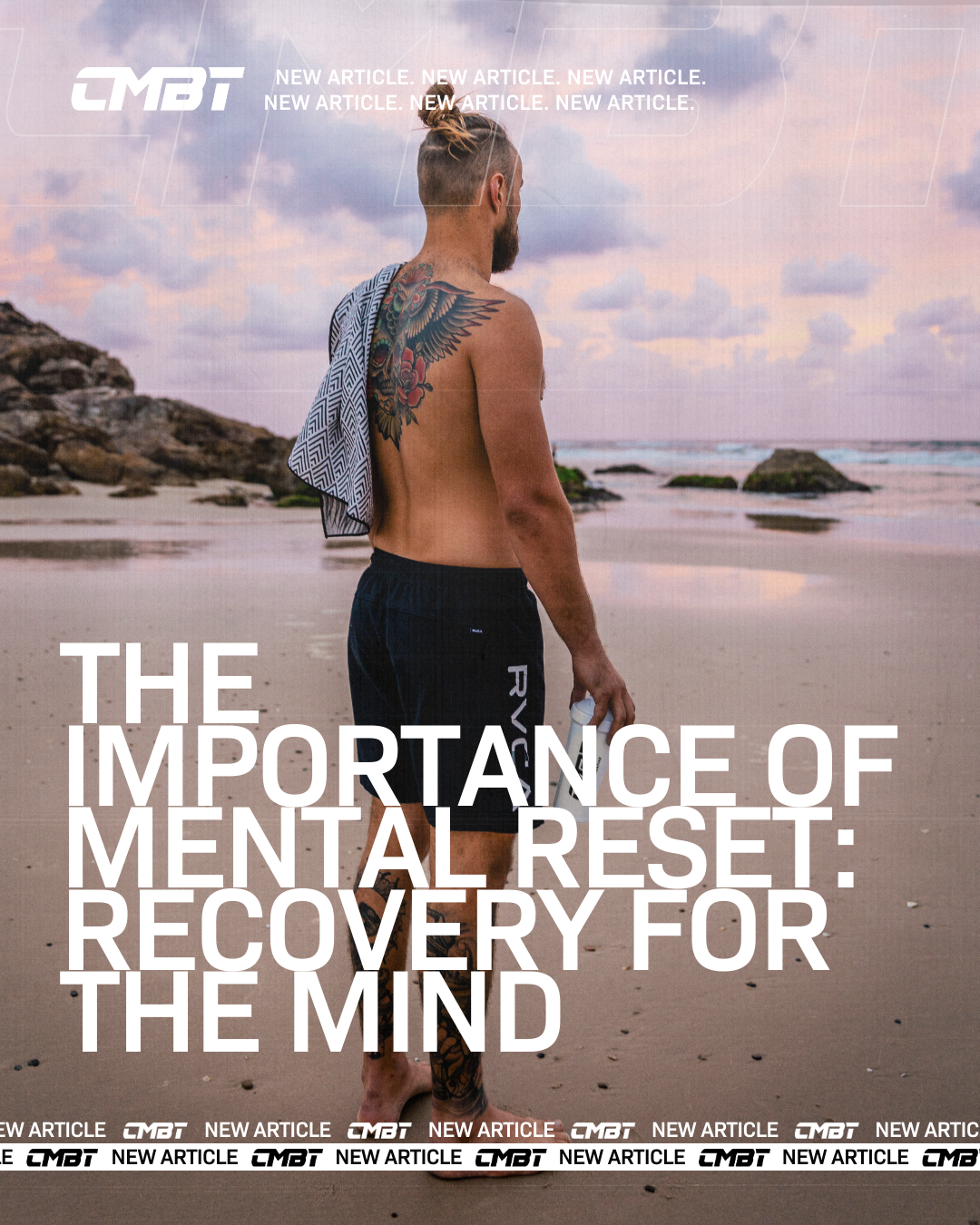



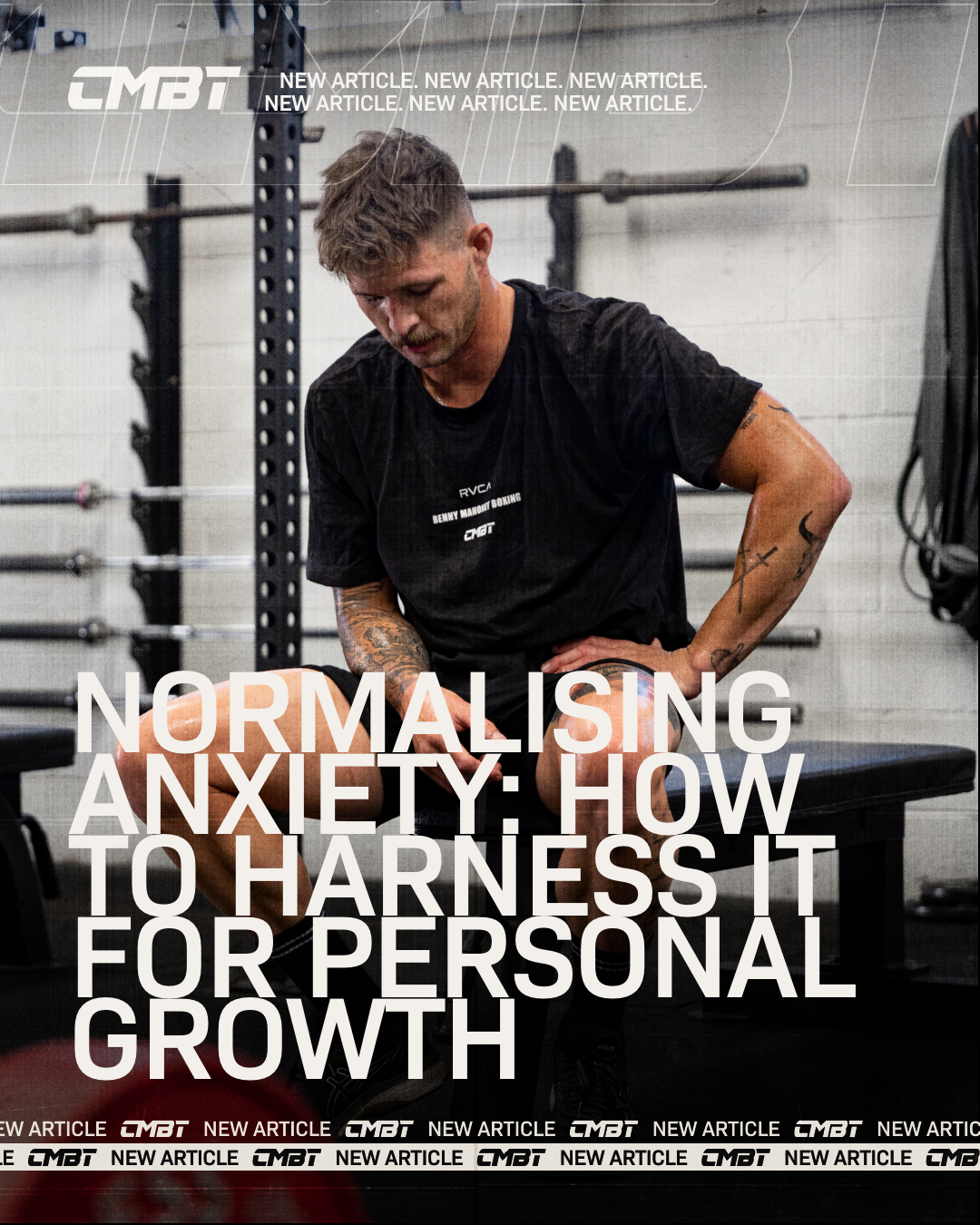
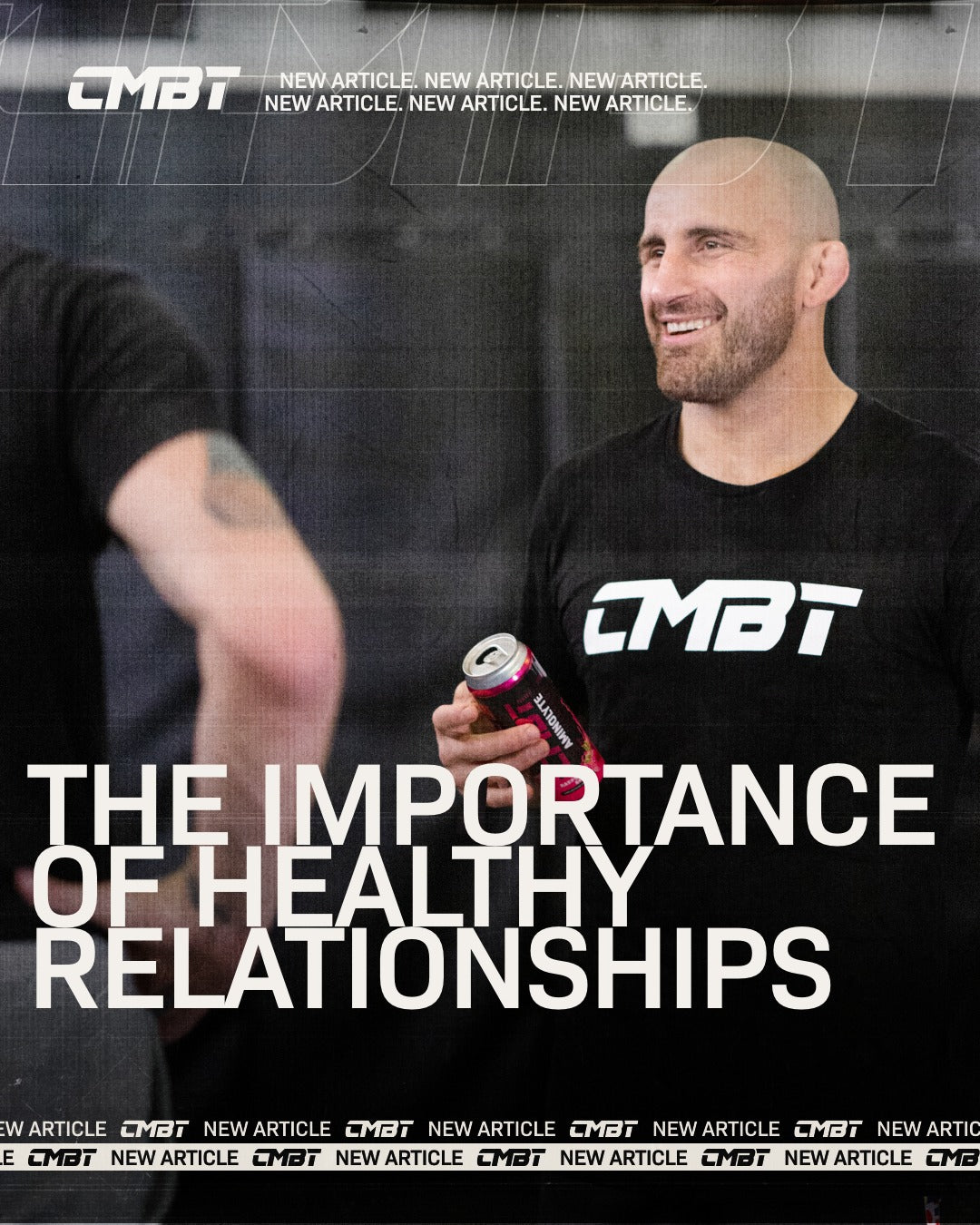
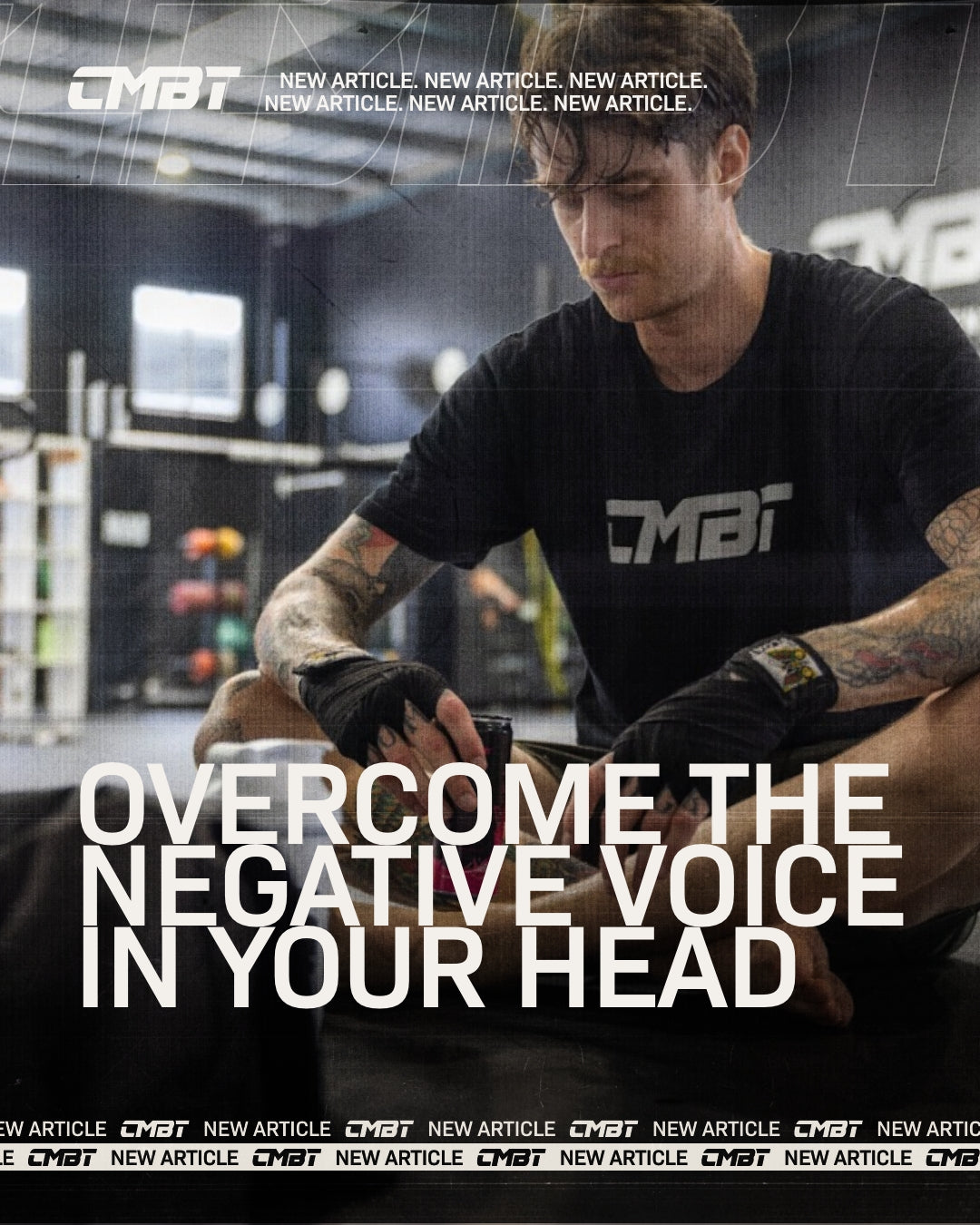


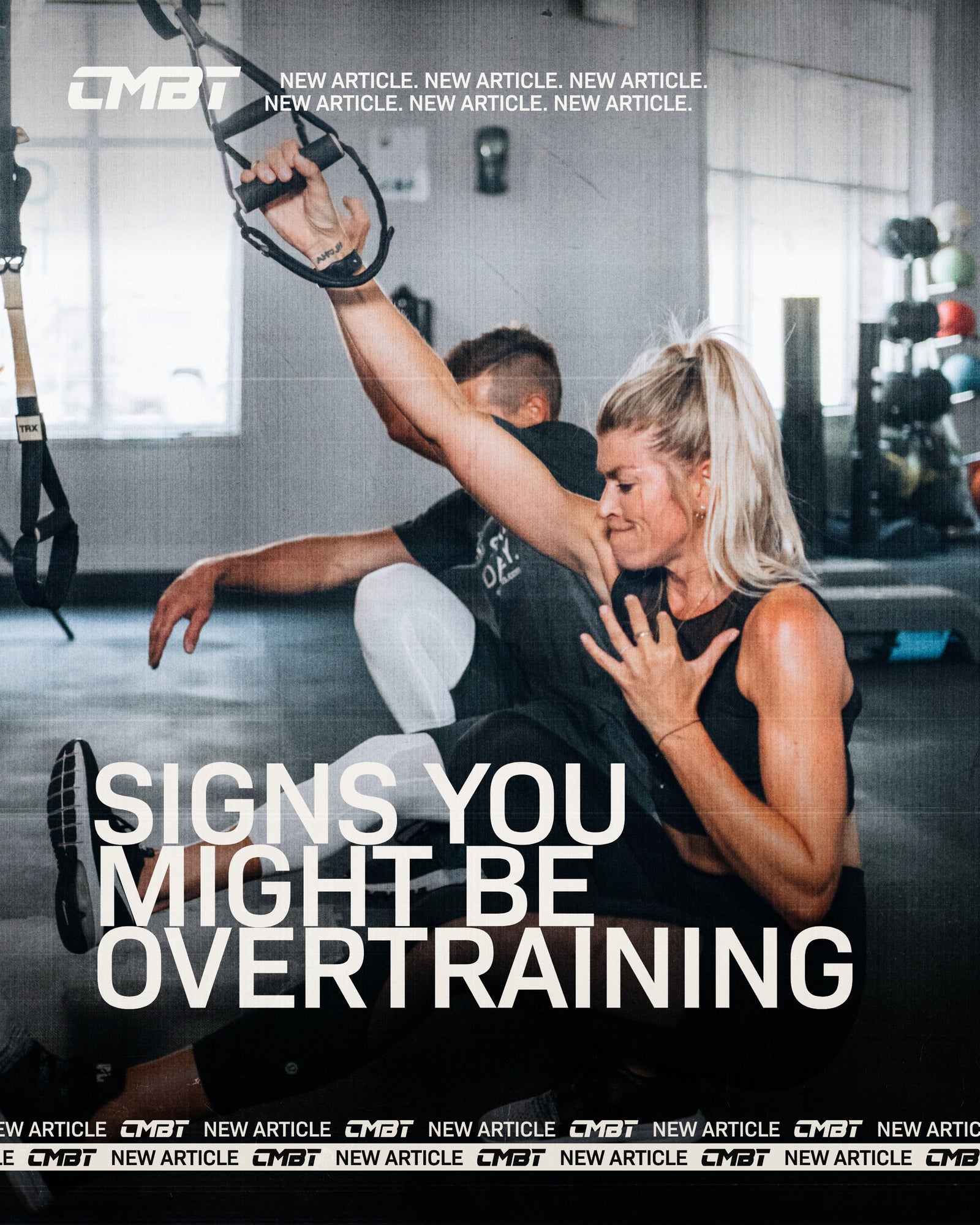


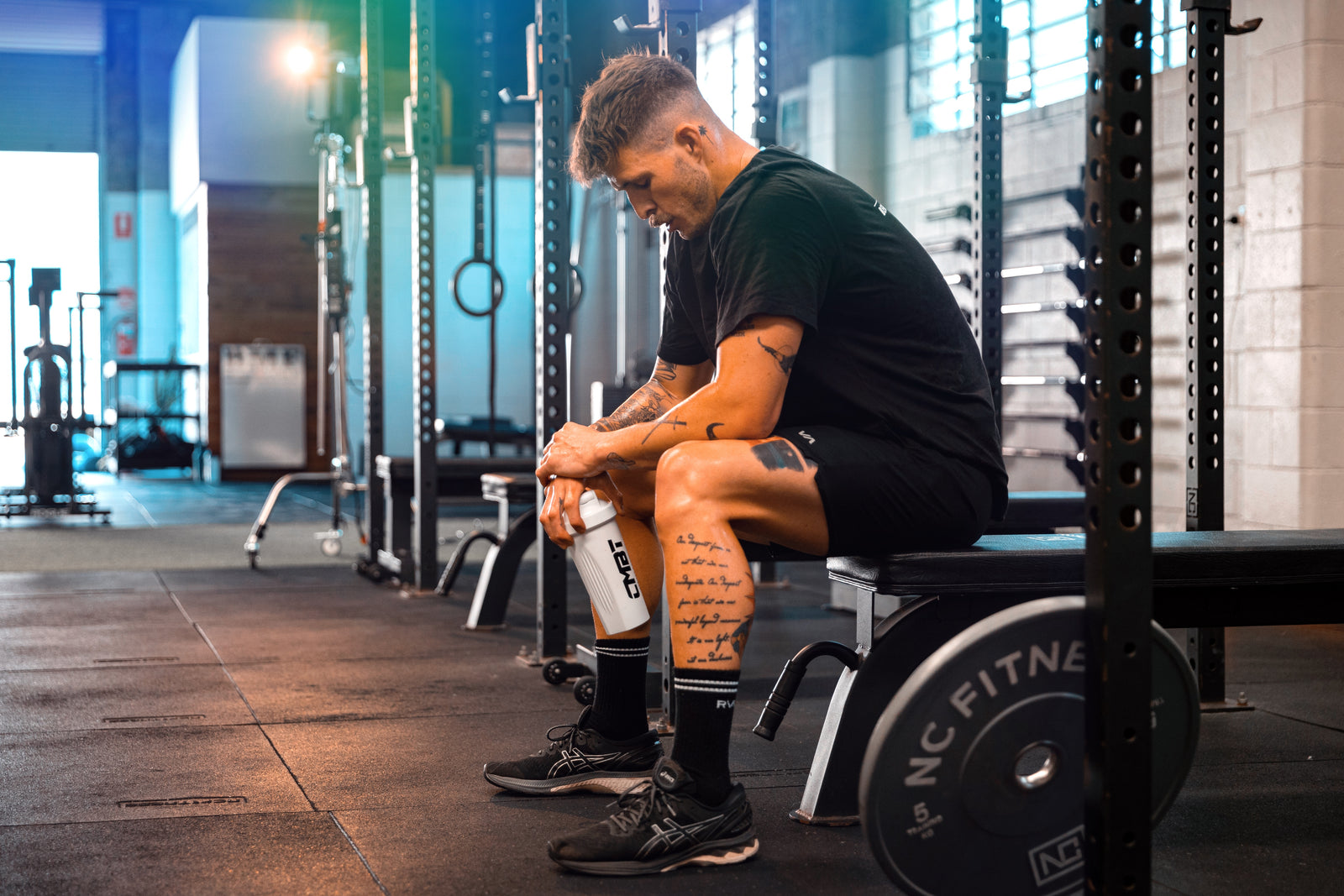
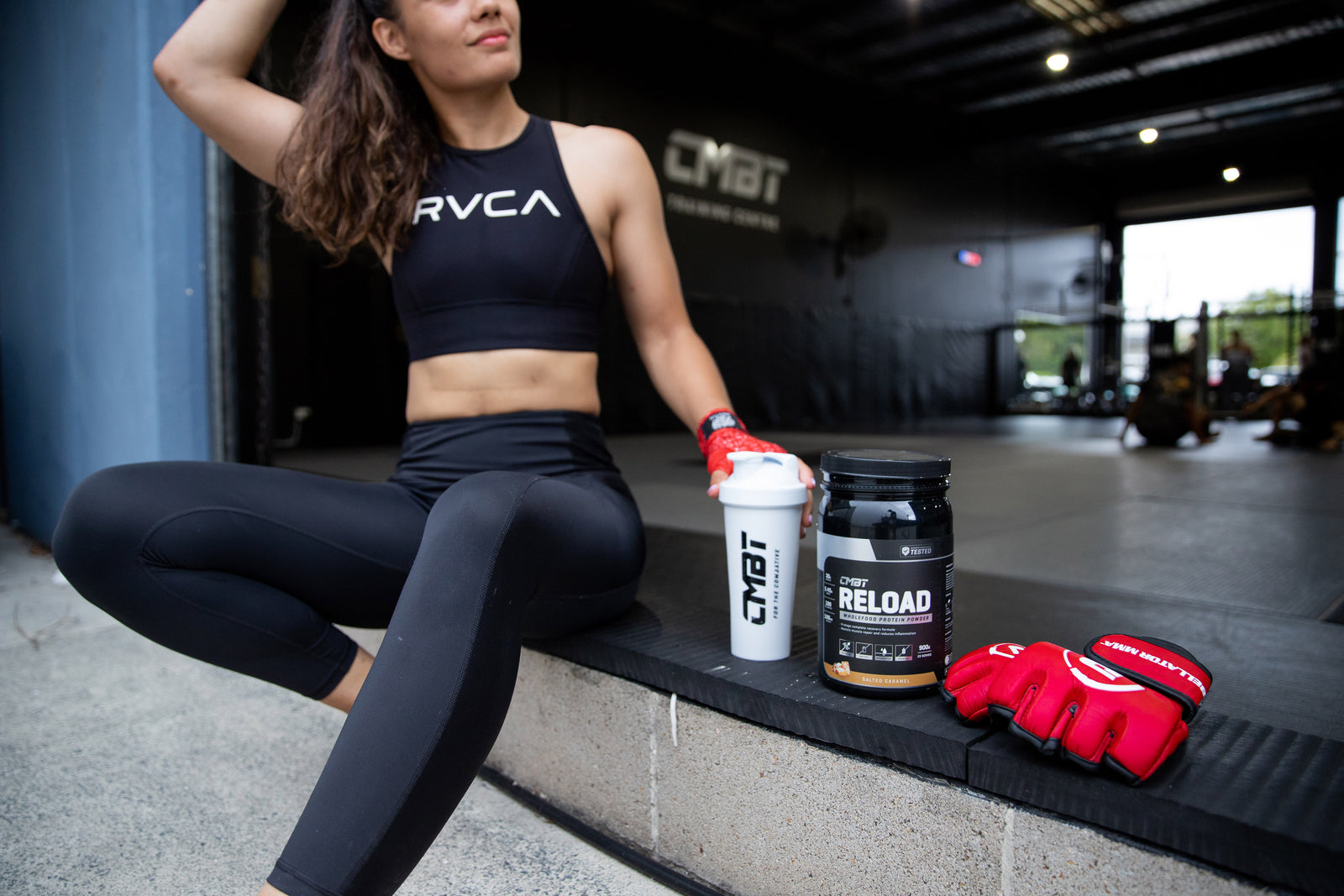
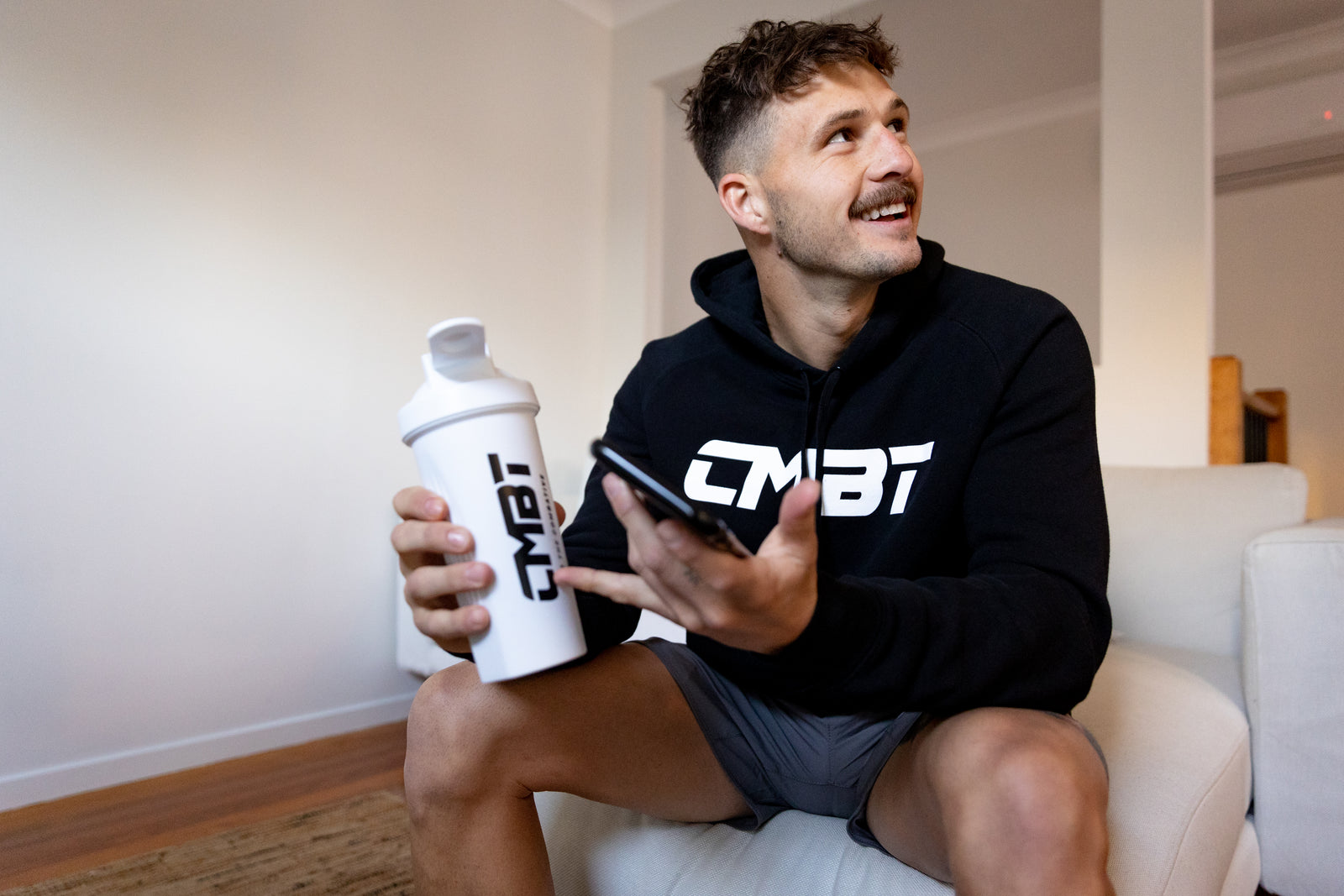
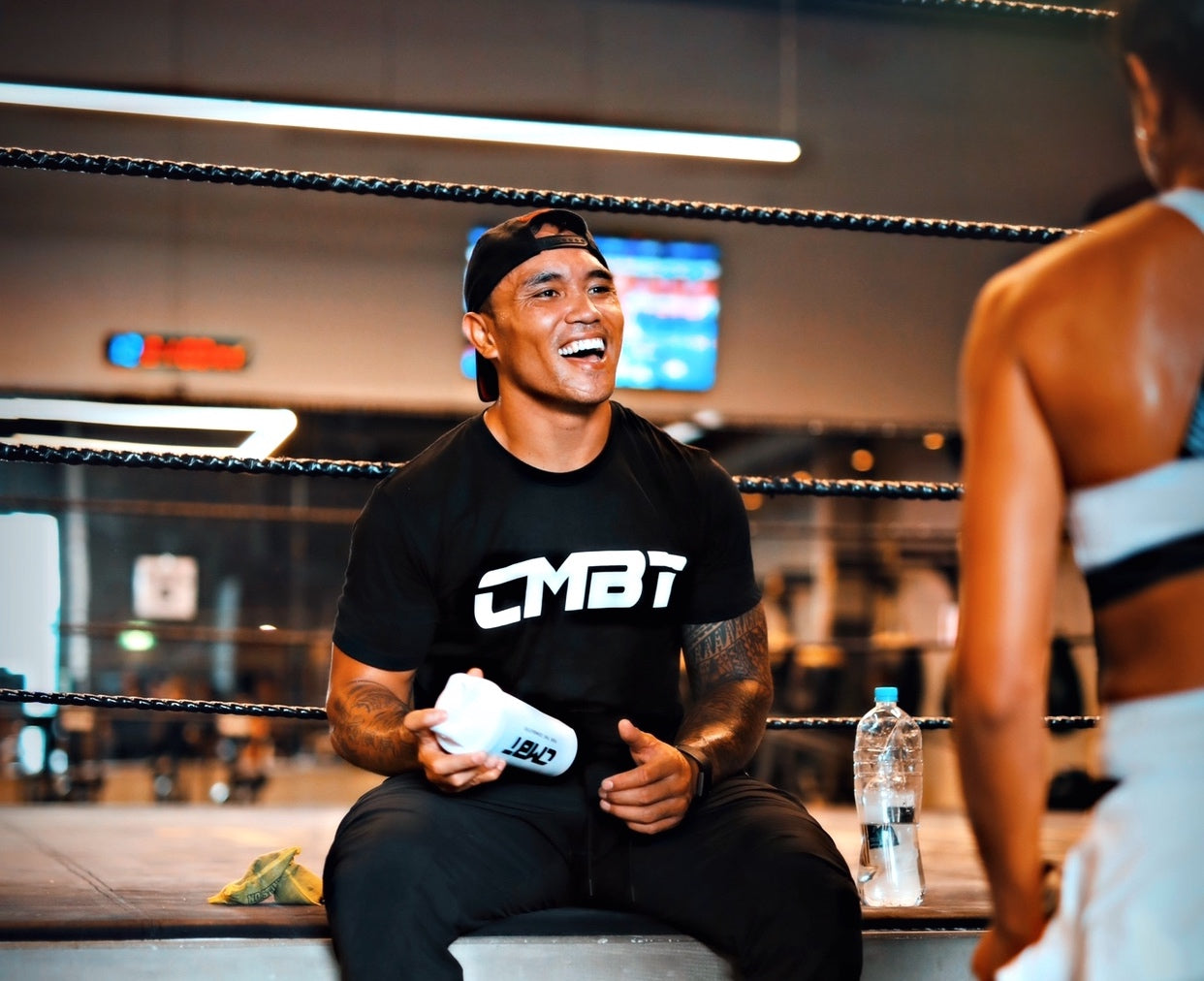
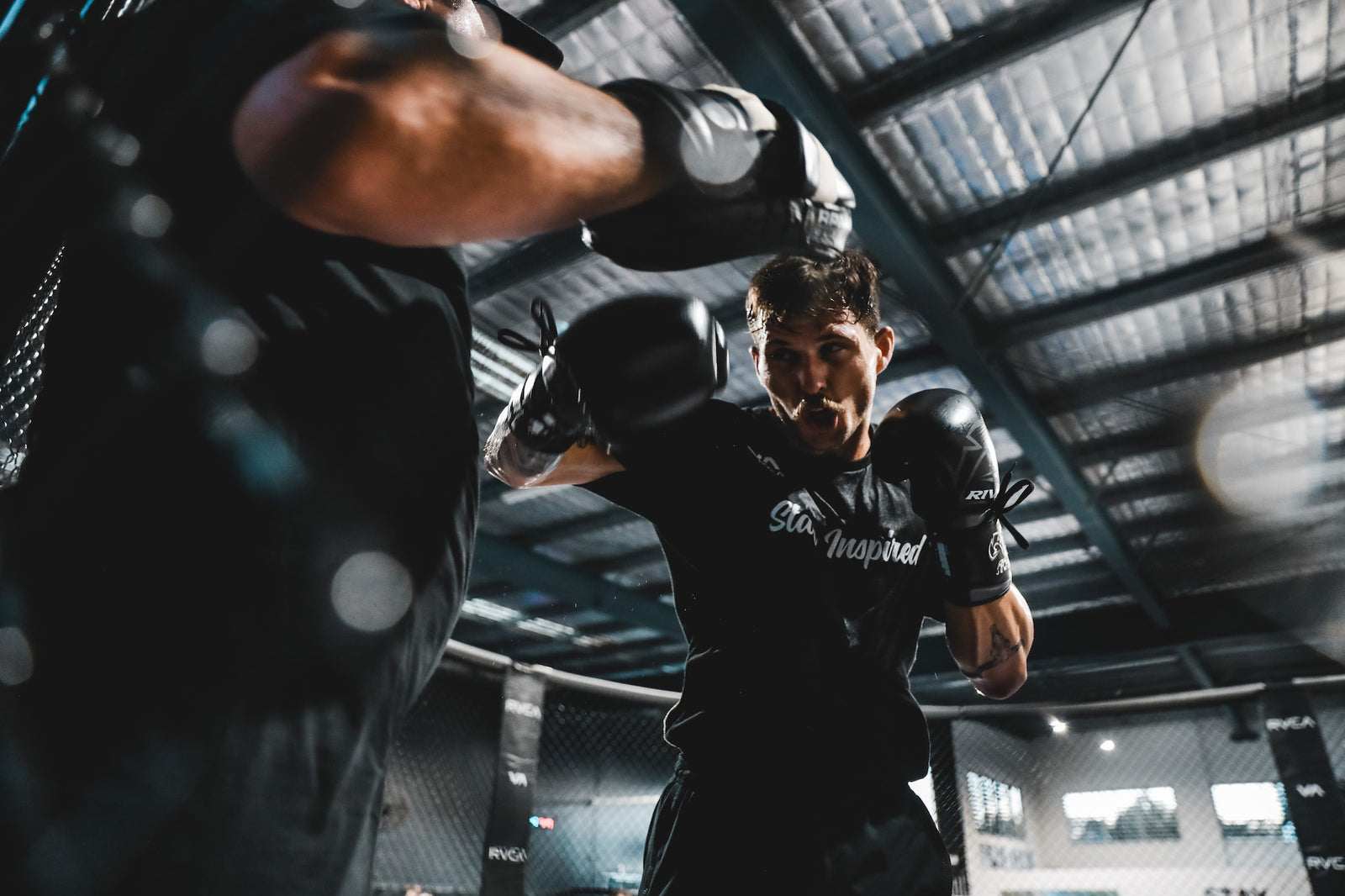
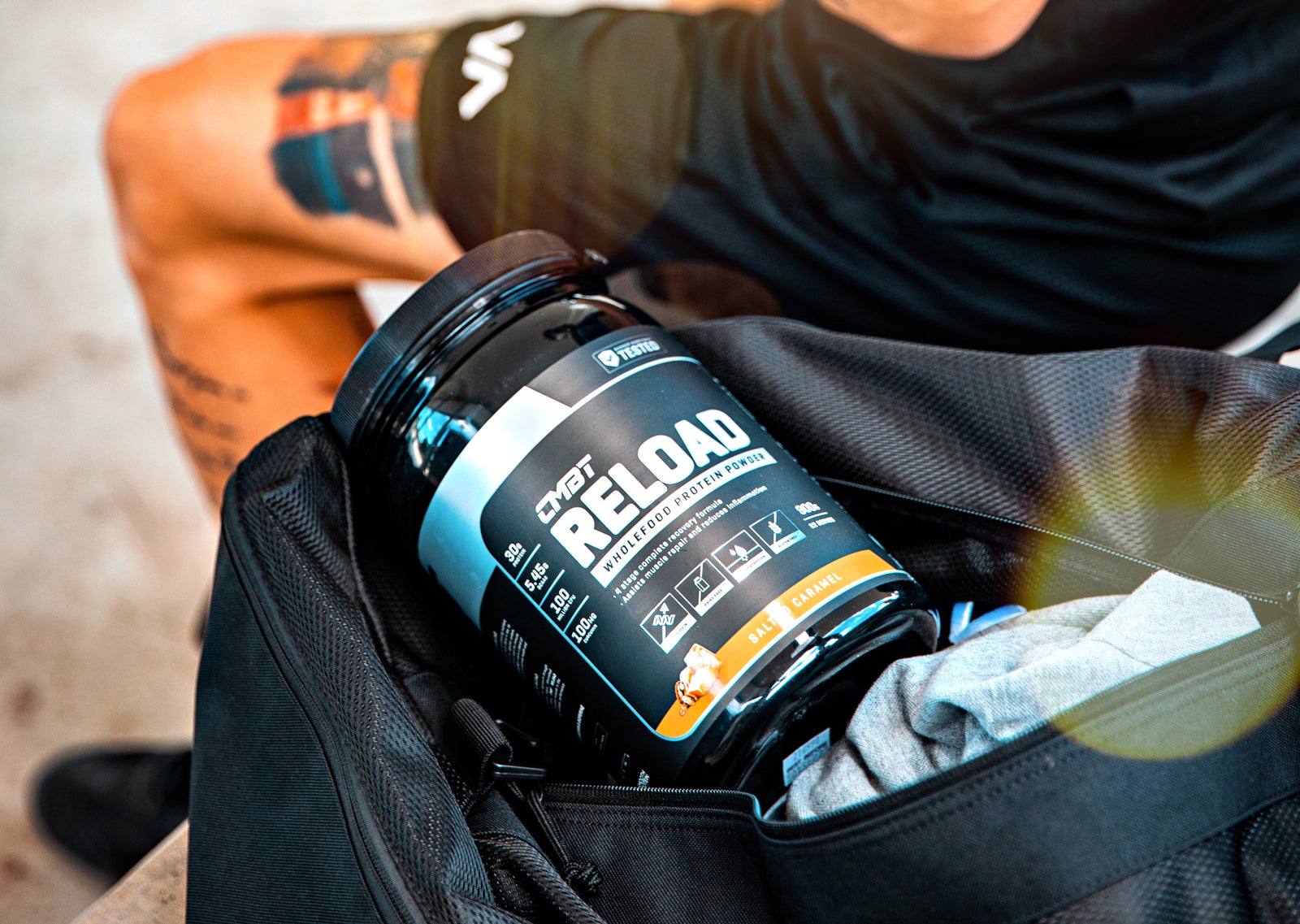
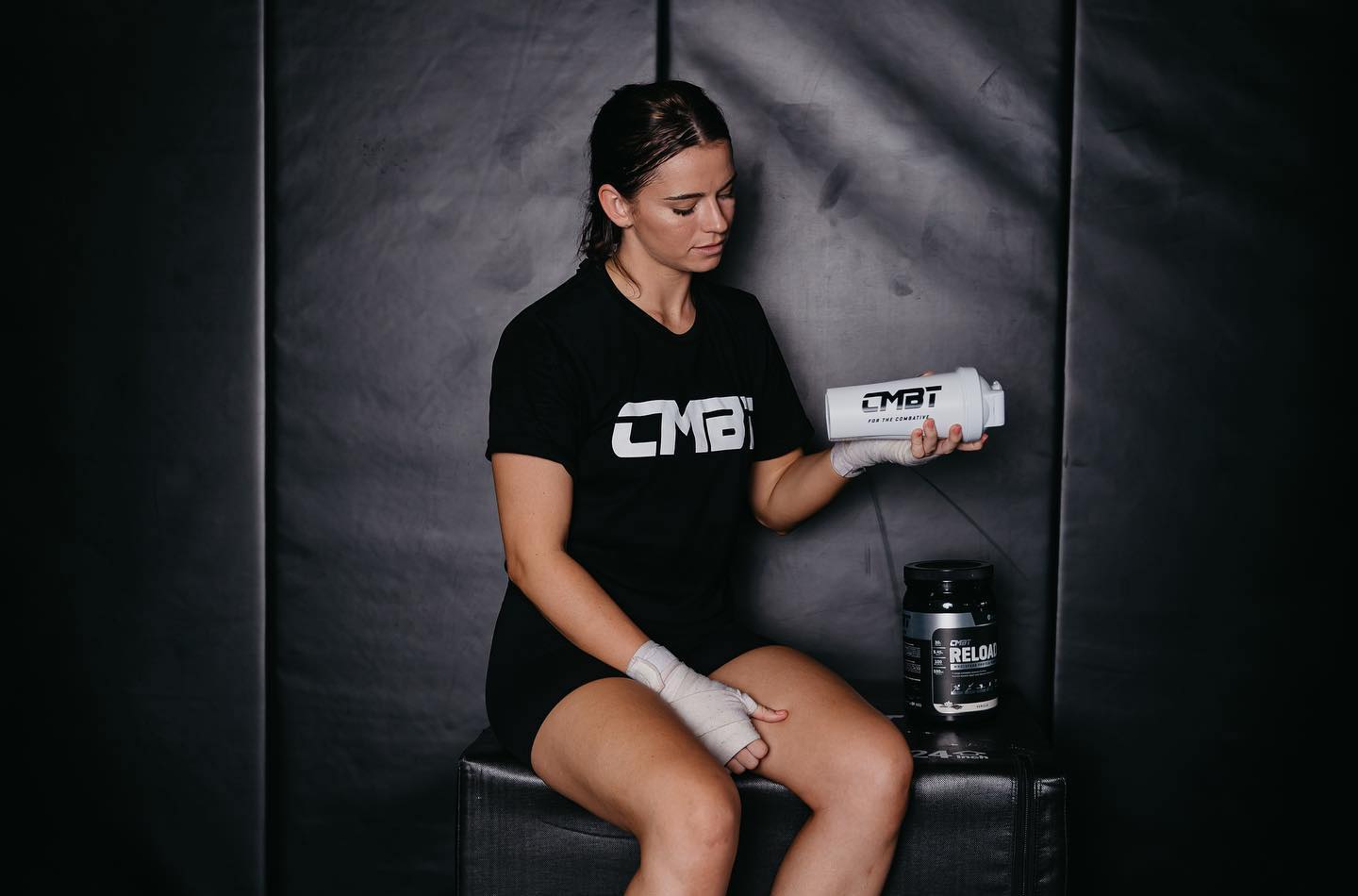


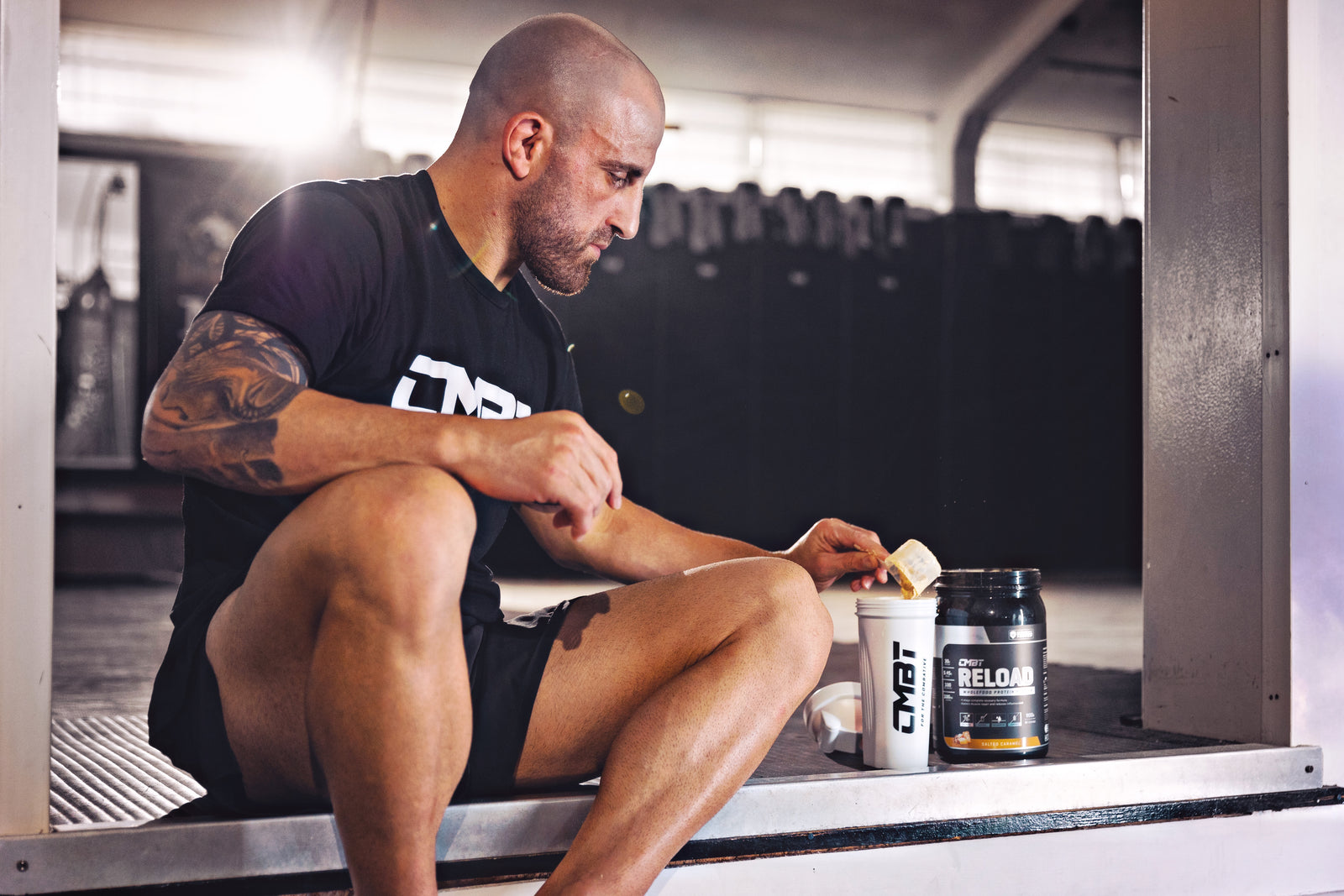


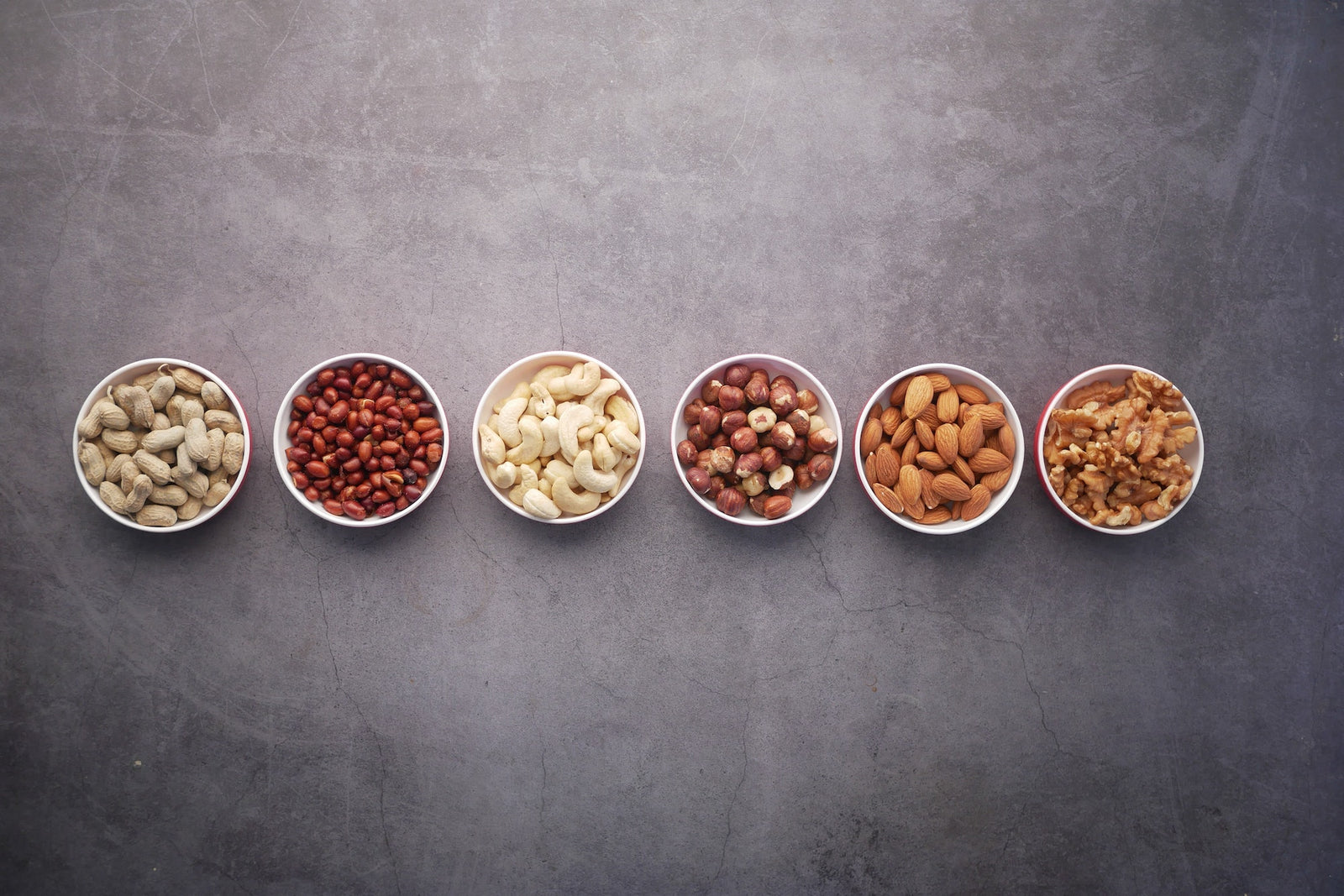
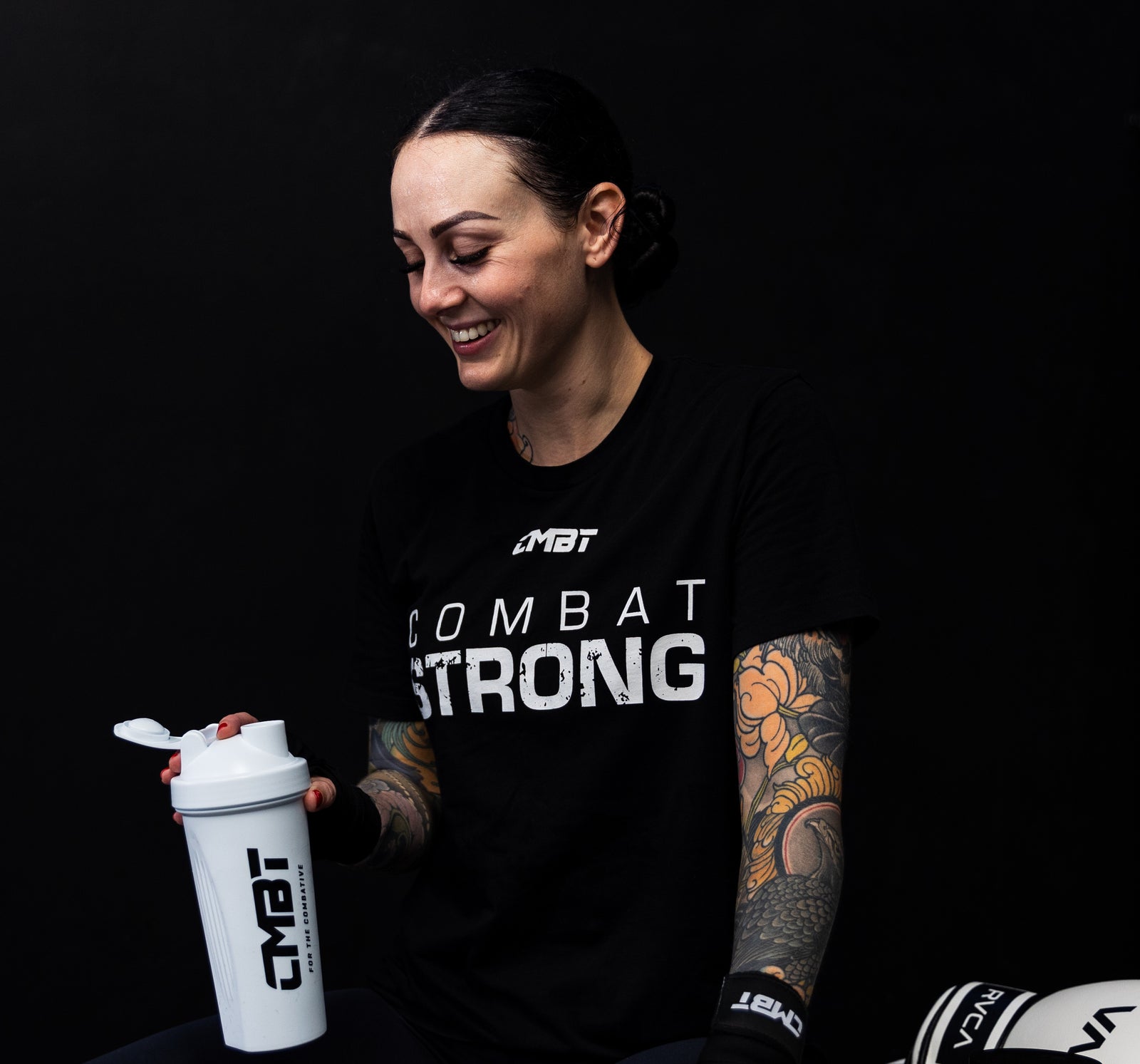
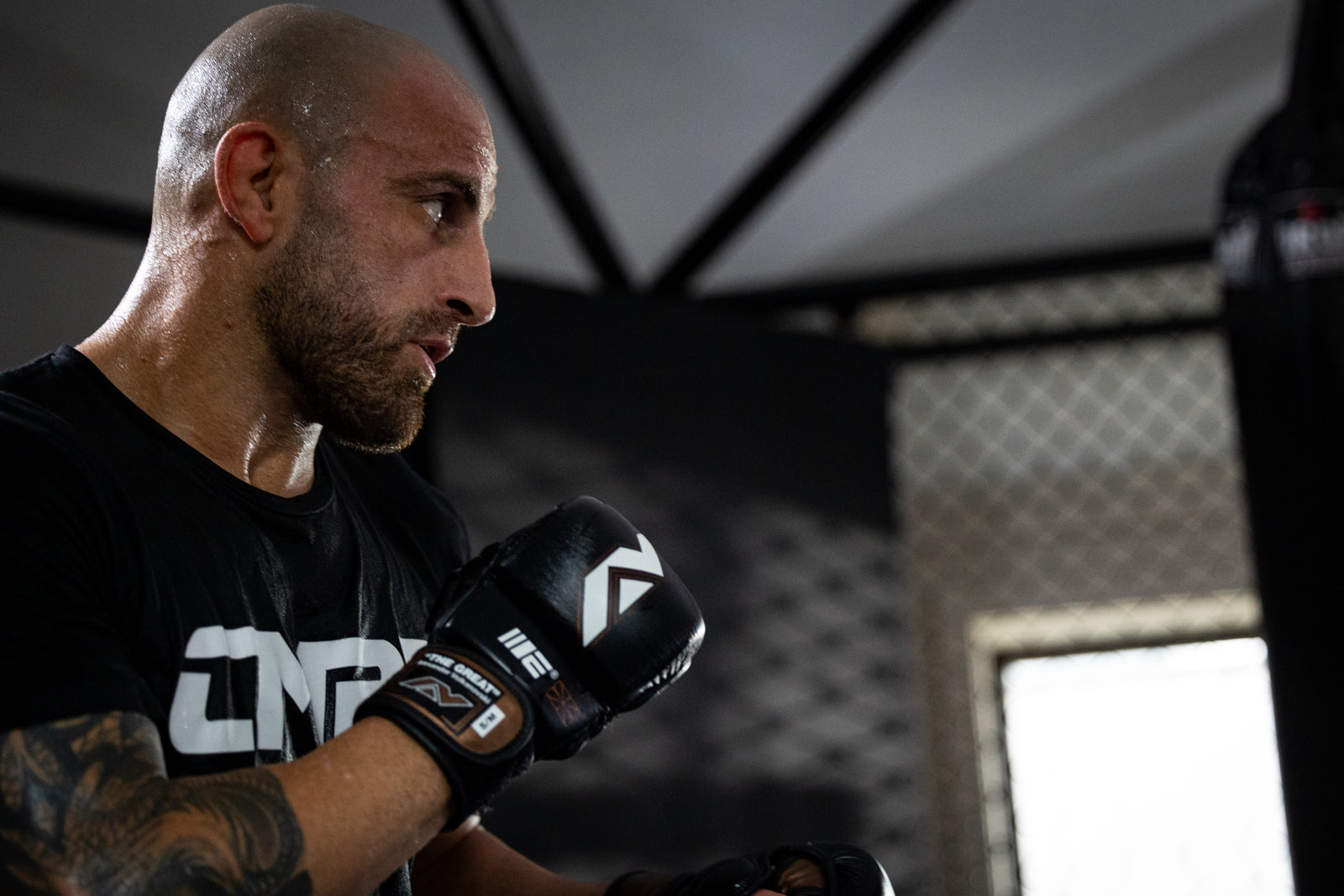
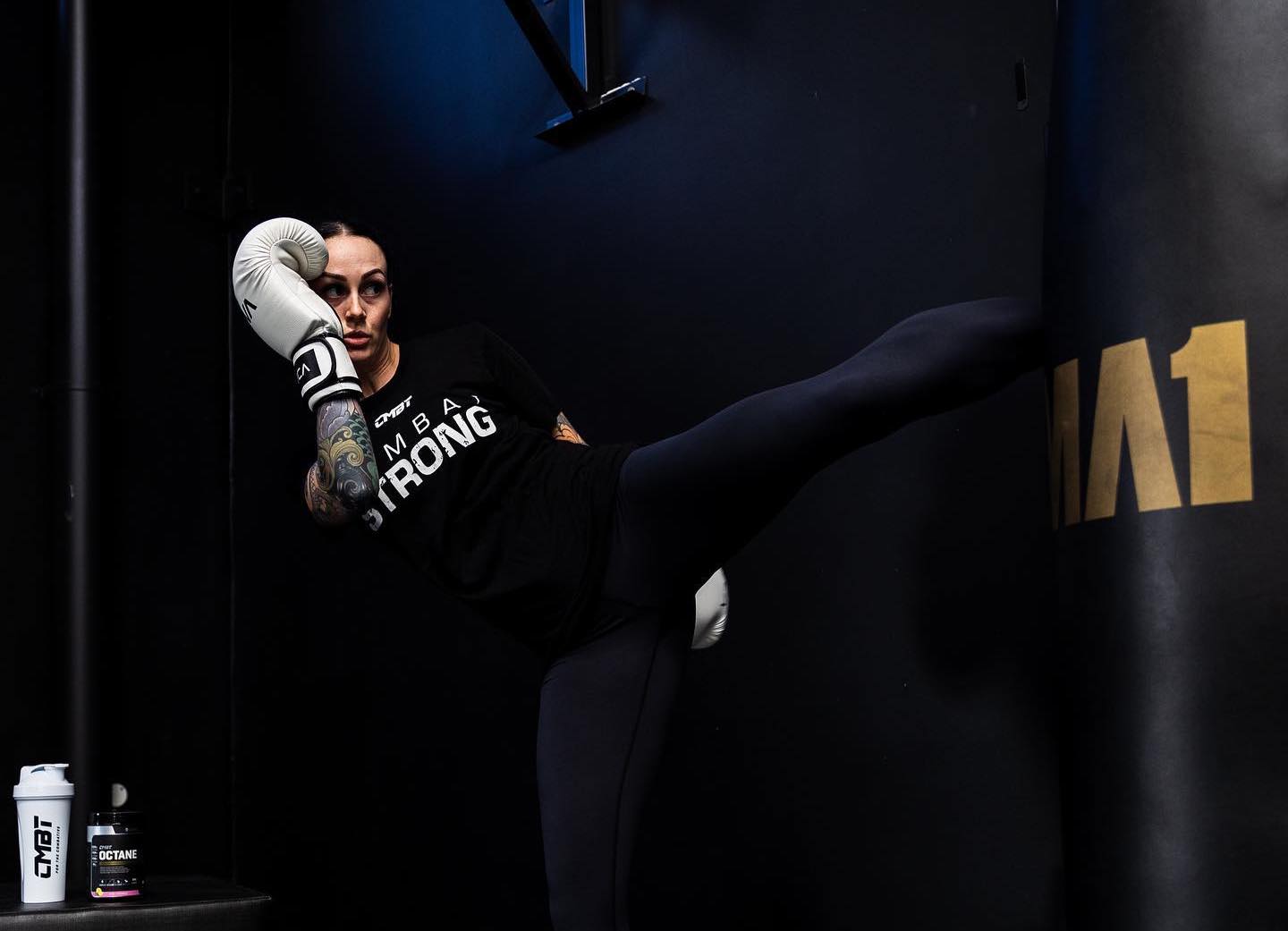

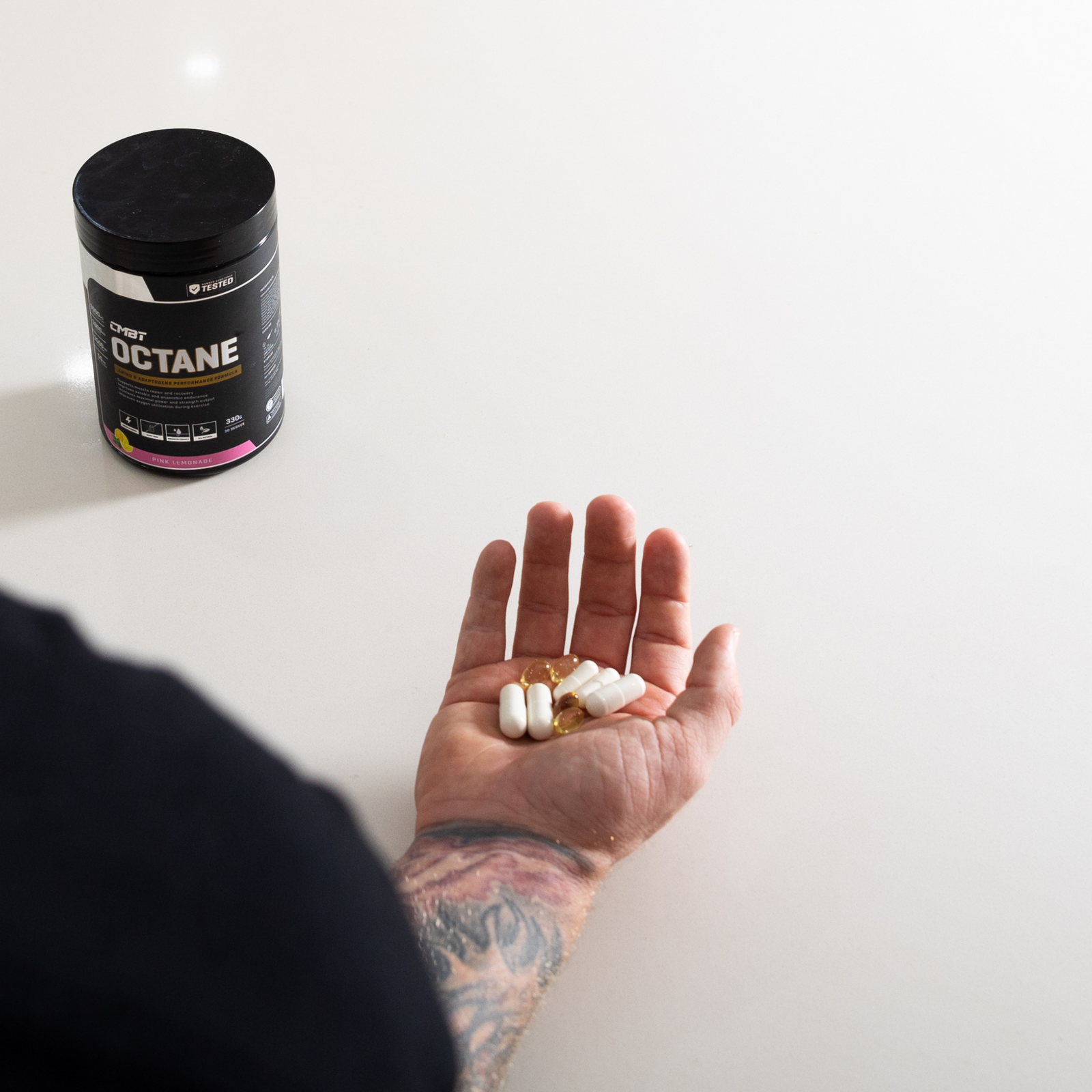
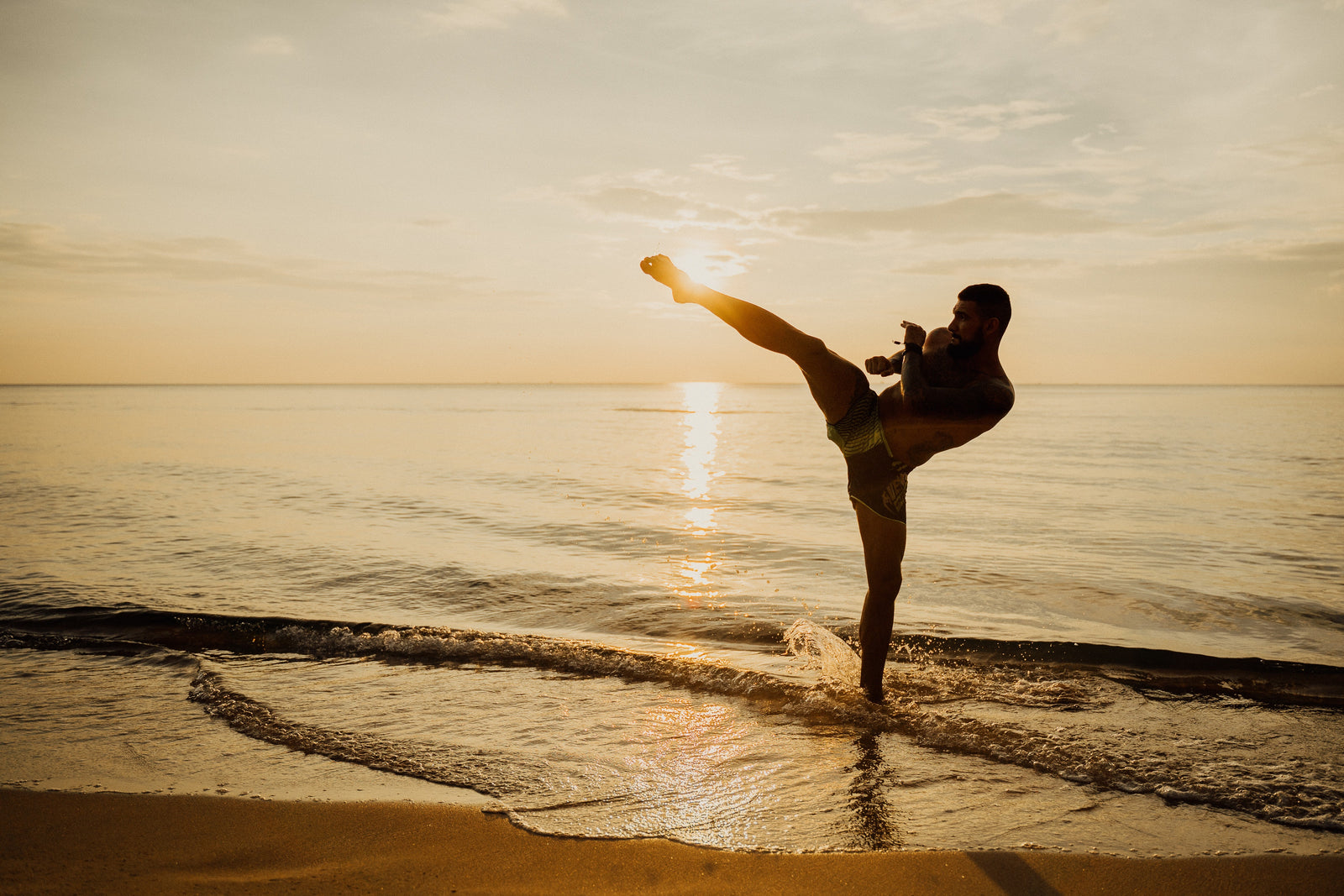
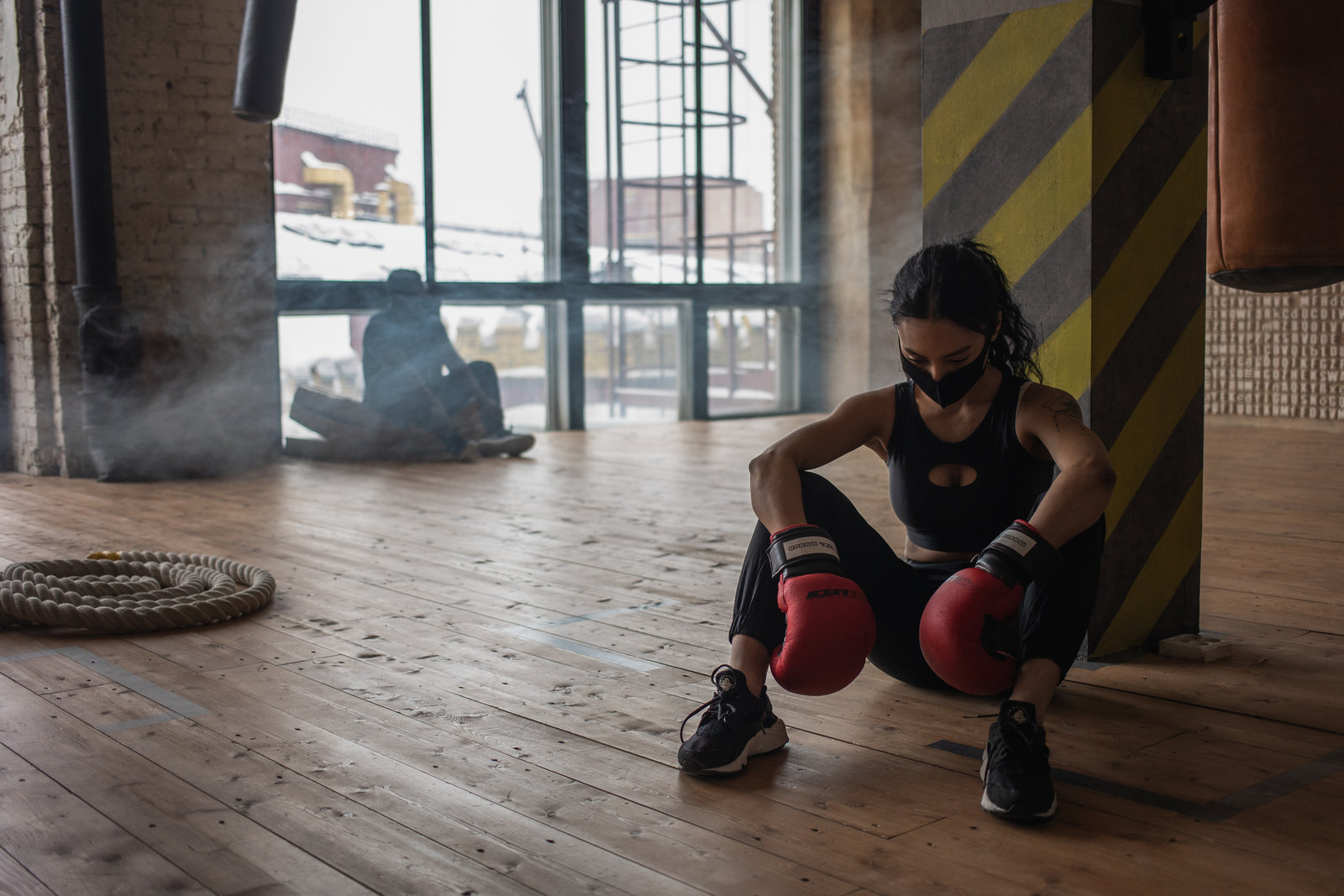

![[VIDEO] Fuel Your Passion feat. Sami Locke](http://cmbt.com.au/cdn/shop/articles/Sami.jpg?v=1625826844&width=1600)